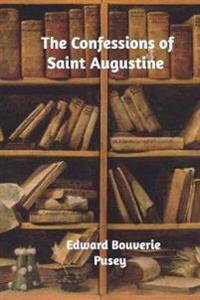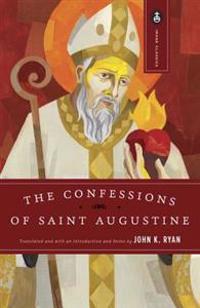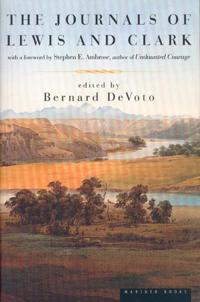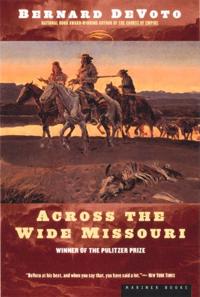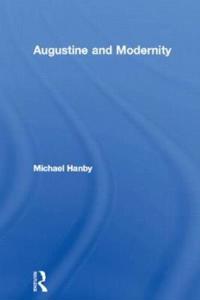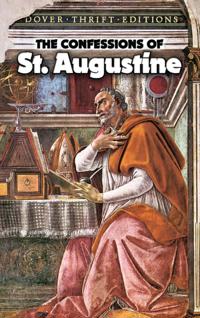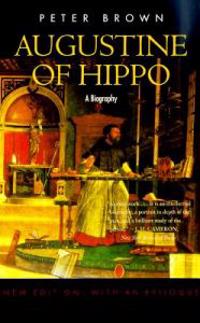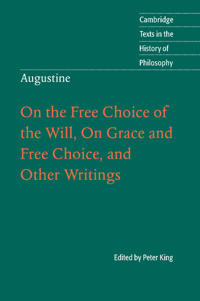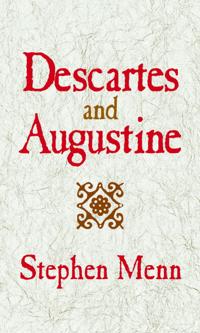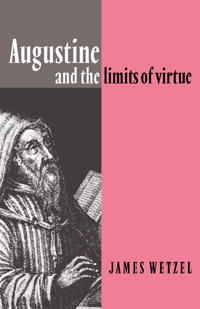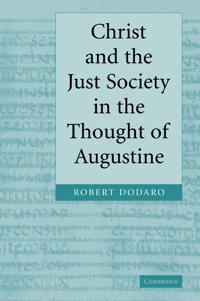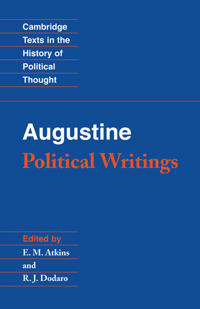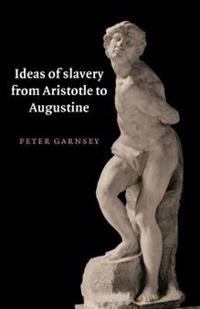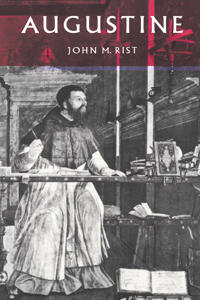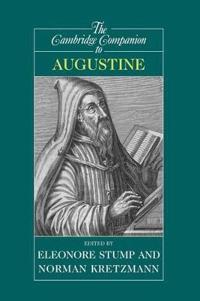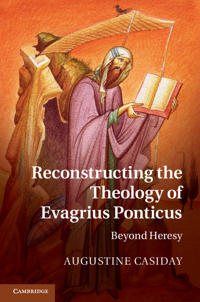Confessions (Häftad)
avSaint Augustine
ISBN: 9780385029551 - UTGIVEN: 196004The greatest spiritual autobiography of all time, this classic work is a literary and theological masterpiece. John K. Ryan's masterful translation brings out the luster of Augustine's unmatched tale of his soul's journey to God.[...]
The Journals of Lewis and Clark (Pocket)
avMeriwether Lewis, Bernard Augustine (EDT) De Voto, William Clark
ISBN: 9780395859964 - UTGIVEN: 1997-04Meriwether Lewis and William Clark's remarkable chronicle of their Voyage of Discovery across the pristine, uncharted wilderness of the American West occupies a unique place in American literature. To a young republic barely a dozen years old, the "Journals" offered not only a pathbreaking work of n[...]
Across the Wide Missouri (Pocket)
avBernard Augustine De Voto
ISBN: 9780395924976 - UTGIVEN: 199809Winner of the Bancroft Prize De Voto weaves a compelling story of the Rocky mountain fur trade during the 1830s, vividly showing how this frontier enterprise shaped the American West. (A Mariner Reissue)[...]
Augustine and Modernity
ISBN: 9780415284691 - UTGIVEN: 2003-06Augustine and Modernity is a fresh and challenging addition to current debates about the Augustinian origins of modern subjectivity and the Christian genesis of Western nihilism. It firmly rejects the dominant modern view that the modern Cartesian subject, as an archetype of Western nihilism, origin[...]
The Confessions of Saint Augustine
ISBN: 9780451531216 - UTGIVEN: 2009-03In his 1500-year-old "Confessions," Augustine of Hippo tells the story of his remarkable life, interwoven with his insights of endless wisdom. Noted Paul VI: ?all of antiquity's philosophy converges in his work.?
[...]Augustine
ISBN: 9780465022274 - UTGIVEN: 2015-11Saint Augustine is one of the most influential figures in all of Christianity, yet his path to sainthood was by no means assured. Born in AD 354 to a pagan father and a Christian mother, Augustine spent the first thirty years of his life struggling to understand the nature of God and his world. He l[...]
Basic Statistics for Social Research (Häftad)
avRobert A. Hanneman, Augustine J. Kposowa, Mark D. Riddle
ISBN: 9780470587980 - UTGIVEN: 2013-01-31Basic Statistics for Social Research offers an introduction to core general statistical concepts and methods. It covers procedural aspects of the application of statistical methods for data-description; and hypothesis-testing; distributions, tabulations, central tendency, variability, independence, [...]
Divine Illumination: The History and Future of Augustine's Theory of Knowle (Häftad)
avLydia Schumacher
ISBN: 9780470657423 - UTGIVEN: 2011-04-30In Divine Illumination, Schumacher offers an original approach to Augustine's theory of divine illumination, the precondition of all human knowledge. Written with great originality and clarity, she traces the idea through medieval thinkers, into early modernity, and reveals its importance in modern [...]
Confessions of St. Augustine
ISBN: 9780486113869 - UTGIVEN: 2012-03More than an autobiography, The Confessions of St. Augustine is one of the most influential religious books in the Christian tradition. A great work of Western literature, it recalls crucial events and episodes in the author's life, in particular, life with his devoutly Christian mother and his orig[...]
Shadows of Poetry, The: Vergil in the Mind of Augustine (Övrig)
avSabine Maccormack
ISBN: 9780520211872 - UTGIVEN: 1998-06-23Imperial ceremony was a vital form of self-expression for late antique society. Sabine MacCormack examines the ceremonies of imperial arrivals, funerals, and coronations from the late third to the late sixth centuries A.D., as manifest in the official literature and art of the time. Her study offers[...]
Augustine of Hippo (Häftad)
avPeter Brown
ISBN: 9780520227576 - UTGIVEN: 200011This classic biography was first published thirty years ago and has since established itself as the standard account of Saint Augustine's life and teaching. The remarkable discovery recently of a considerable number of letters and sermons by Augustine has thrown fresh light on the first and last dec[...]
Augustine of Hippo (Häftad)
ISBN: 9780520280410 - UTGIVEN: 2013-09This classic biography was first published thirty years ago and has since established itself as the standard account of Saint Augustine's life and teaching.[...]
Augustine (Pocket)
avPeter King
ISBN: 9780521001298 - UTGIVEN: 201006The works translated here deal with two major themes in the thinking of St Augustine (354-430): free will and divine grace. On the one hand, free will enables human beings to make their own choices; on the other hand, God's grace is required for these choices to be efficacious. 'On the Free Choice o[...]
Descartes and Augustine (häftad)
ISBN: 9780521012843 - UTGIVEN: 2002-01This book is a systematic study of Descartes' relation to Augustine. It offers a complete reevaluation of Descartes' thought and as such will be of major importance to all historians of medieval, neo-Platonic, or early modern philosophy. Stephen Menn demonstrates that Descartes uses Augustine's cent[...]
Augustine and the Limits of Virtue (Pocket)
avJames Wetzel
ISBN: 9780521064811 - UTGIVEN: 2008-06Augustine's moral psychology was one of the richest in late antiquity, and in this book James Wetzel evaluates its development, indicating that the insights offered by Augustine on free-will have been prevented from receiving full appreciation as the result of an anachronistic distinction between th[...]
Christ and the Just Society in the Thought of Augustine (Pocket)
avRobert Dodaro
ISBN: 9780521069649 - UTGIVEN: 2008-07Christ and the Just Society in the Thought of Augustine is a study of Augustine's political thought and ethics in relation to his theology. The book examines fundamental issues in Augustine's theological and political ethics in relation to the question, 'How did Augustine conceive the just society'?[...]
Augustine's Inner Dialogue (Inbunden)
avBrian Stock
ISBN: 9780521190312 - UTGIVEN: 2010-10Augustine's philosophy of life involves mediation, reviewing one's past and exercises for self-improvement. Centuries after Plato and before Freud he invented a 'spiritual exercise' in which every man and woman is able, through memory, to reconstruct and reinterpret life's aims. In this 2010 book, B[...]
Augustine on Evil (Häftad)
avGillian R. Evans
ISBN: 9780521397438 - UTGIVEN: 1990-07Augustine, perhaps the most important and most widely read Father of the Church, first became preoccupied with the problem of evil in his boyhood and this preoccupation continued throughout his life. This well-written, and highly-acclaimed study follows him in his progress towards a solution, and be[...]
Augustine Political Writings (Pocket)
avE. M. (EDT) Atkins, Robert J. (EDT) Dodaro, E. M. (EDT) Atkins
ISBN: 9780521446976 - UTGIVEN: 2001-02This collection brings together thirty-five letters and sermons of Augustine, Bishop of Hippo from 396 to 430 AD, that deal with political matters. The letters and sermons are both practical and principled and treat many essential themes in Augustine's thought, including the responsibilities of citi[...]
Augustine: Confessions Books I-IV (Häftad)
ISBN: 9780521497633 - UTGIVEN: 1995-11Augustine?s Confessions is one of the most influential and most innovative works of Latin literature. Written in the author?s early forties in the last years of the fourth century AD, they reflect on his life and on the activity of remembering and interpreting a life. Books I?IV are concerned with i[...]
Ideas of Slavery from Aristotle to Augustine (Häftad)
avPeter Garnsey
ISBN: 9780521574334 - UTGIVEN: 199611This study, unique of its kind, asks how slavery was viewed by the leading spokesmen of Greece and Rome. There was no movement for abolition in these societies, nor a vigorous debate, such as occurred in antebellum America, but this does not imply that slavery was accepted without question. Dr Garns[...]
Augustine (Häftad)
avJohn M. Rist
ISBN: 9780521589529 - UTGIVEN: 199609This major work constitutes a significant attempt to provide a detailed and accurate account of the character and effects of Augustineâs thought as a whole. It describes the transformation of Greco-Roman philosophy into the version that was to become the most influential in the history of Weste[...]
The Cambridge Companion to Augustine (Häftad)
ISBN: 9780521659857 - UTGIVEN: 200103It is hard to overestimate the importance of the work of Augustine of Hippo, both in his own period and in the subsequent history of Western philosophy. Until the thirteenth century, when he may have had a competitor in Thomas Aquinas, he was the most important philosopher of the medieval period. Ma[...]
Reconstructing the Theology of Evagrius Ponticus (Inbunden)
avAugustine Casiday
ISBN: 9780521896801 - UTGIVEN: 201308Evagrius Ponticus is regarded by many scholars as the architect of the eastern heresy Origenism, as his theology corresponded to the debates that erupted in 399 and episodically thereafter, culminating in the Second Council of Constantinople in 553 AD. However some scholars now question this convent[...]

